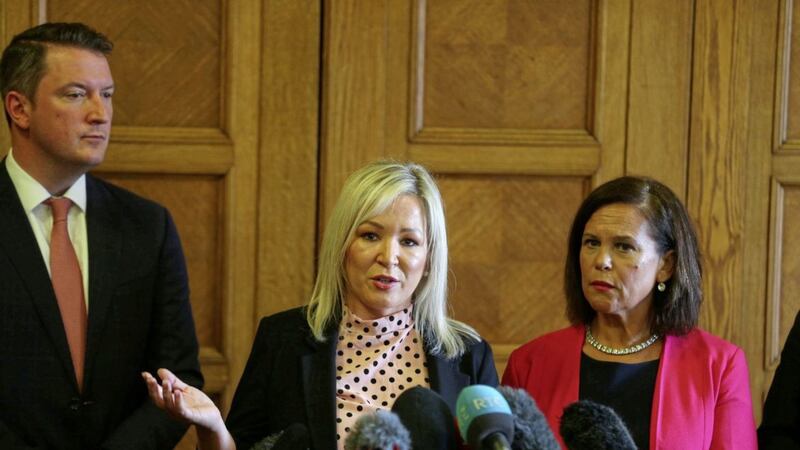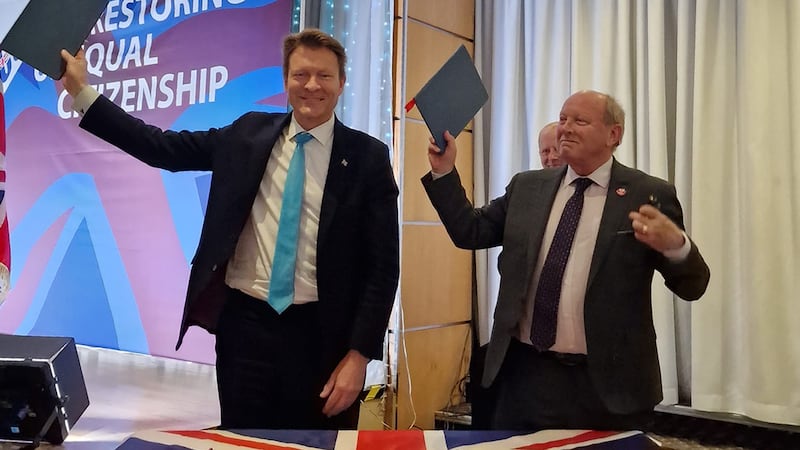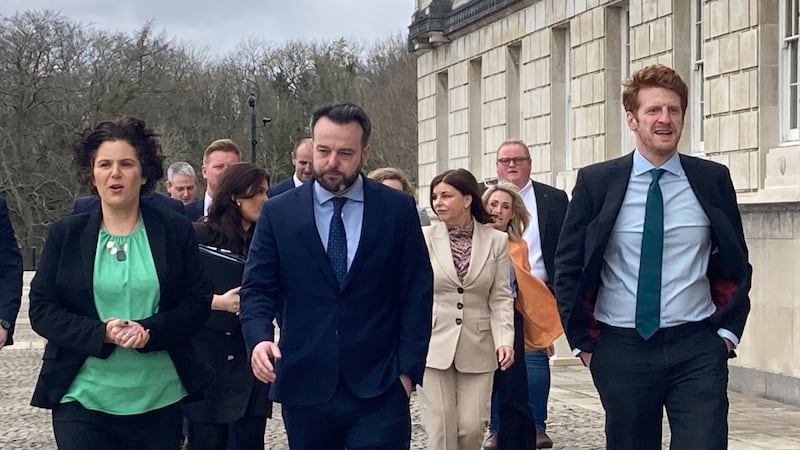IN the period leading up to the Belfast/Good Friday Agreement, militant republicans were persuaded that they could make substantial progress towards a united Ireland by non-violent political means.
In light of the assembly election results at the weekend, that approach seems somewhat more realistic, although it certainly won’t come about overnight.
Sinn Féin are top of the hill (Stormont Hill if you like) in Northern Ireland politics. It’s been a long wait, at 101 years. Mary Lou McDonald is talking about a five-year time scale for voting on Irish unity. That might be rather optimistic but joint referendums do look somewhat closer than before the ballot boxes were opened. Recent opinion surveys indicate, however, that there is a good deal of work to be done to convince a majority in the north to the unity cause.
The Lord Ashcroft Polls survey published last December, involving 3,301 adults in Northern Ireland, found that one in ten voters were undecided on the unity issue. Among the remainder, the figures were 54 per cent for staying in the United Kingdom and 46 per cent against. An Institute of Irish Studies-University of Liverpool survey published in this newspaper last month showed 45.3 per cent opposed to Irish unity, compared to 30 per cent in favour and 24.7 per cent either neutral or undecided.
Look, you can’t bang on about 800 years of oppression, as nationalists have been doing for a considerable part of that time and then expect to wake up the next morning in a united Ireland, where Wolfe Tone’s “Protestant, Catholic and Dissenter”, along with other categories he may never have imagined, are living in peace and harmony.
It seems likely that the undecided in the opinion polls - “the ditherers” if you like - will have the decisive say. In that context, it is reasonable to predict they will be partly influenced by their experience of life under a power-sharing administration headed by Sinn Féin.
That is, of course, assuming that the Democratic Unionist Party can be persuaded to join the executive, which cannot be established without them. The DUP would not of course be doing so to facilitate a 32-county republic, but staying on the sideline doesn’t give spectators a chance to assess your game.
The surge in support for Alliance suggests a high proportion of the electorate are fed up with what they may regard as political grandstanding over issues like the Northern Ireland Protocol and a border poll. The cost of living, the situation in the health service and other such concerns may well be their priorities instead.
The possibility of a political stalemate lasting 24 weeks or even longer is beyond tiresome and depressing. But we must try to see things in perspective: a stand-off in the shadow of dreary steeples is minor compared with what has been taking place in Ukraine. Our war is over: theirs only started 11 weeks ago.
That horrific conflict and its implications for Irish neutrality were the main topic in a lively discussion last Friday between two Irish members of the European Parliament, Barry Andrews of Fianna Fáil and Independent MEP Clare Daly. Yours truly chaired the debate, which was part of the Roger Casement Summer School/Festival in Dún Laoghaire.
There were some sharp exchanges, although the two speakers shared a common desire to see an end to the appalling conflict. Andrews said: “The blame for what’s happening in Ukraine lies with the Kremlin.” Claiming that, “The left and extreme right have failed to appreciate the threat from Russia” he went on to condemn Vladimir Putin’s forces for some dreadful atrocities.
For her part, Daly accepted that “Ukraine absolutely has a right to defend itself” but she claimed that the “Military Industrial Complex” (mainly based in the USA) is seeking to prolong the war for the benefit of the arms industry in particular. Expressing opposition to sanctions, she said she wanted to see “a diplomatic end” to “the most devastating war on this continent since the end of World War Two”.
Somewhat surprisingly, Daly said Pope Francis had “stolen my notes” with his recent remarks on Ukraine. In an interview with the newspaper Corriere Della Sera, the Pontiff said Putin’s attack on Ukraine might have been a reaction to “Nato’s barking at Russia’s gate”. He had requested a meeting with Putin in Moscow to discuss ending the conflict but there had been no response as yet. It’s not every day you see the Pope and a radical MEP on the same page.
Email: Ddebre1@aol.com; Twitter: @DdeBreadun








